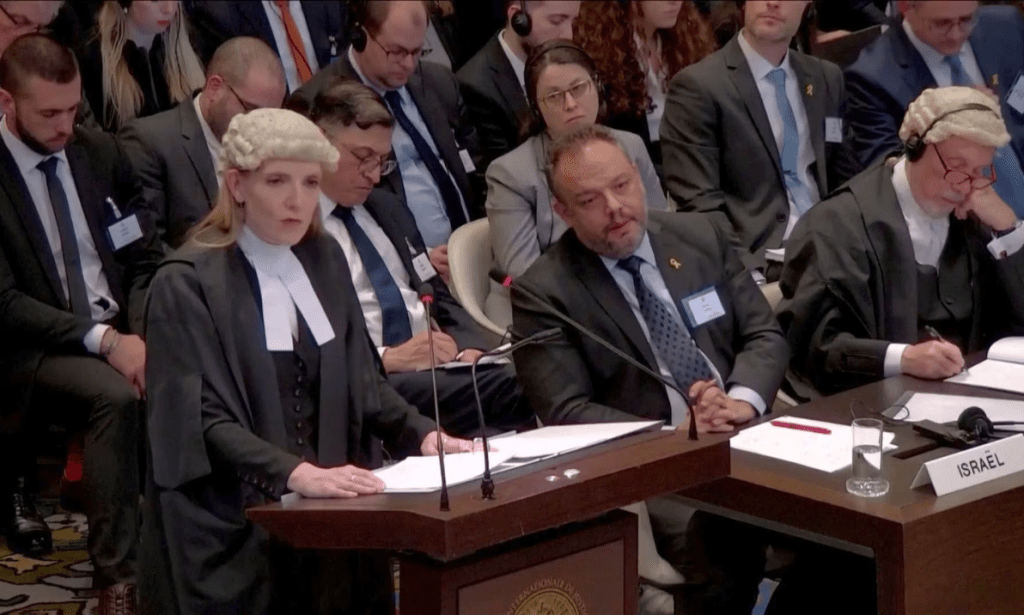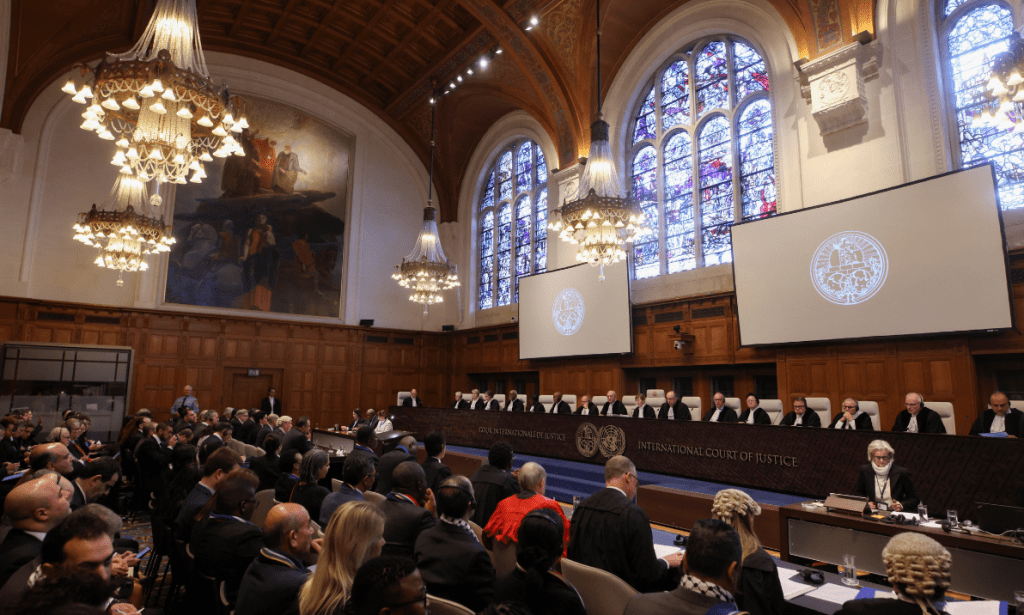Taking a major global and legal step in support of Palestine is South Africa, who filed a genocide case against Israel at the International Court of Justice (ICJ), leading to a 2-day ICJ genocide hearing to take place at The Hague.
Kicking off the hearing last Thursday, South Africa accused Israel of “genocidal intent” and pleaded with the judges at the ICJ to release an interim order that demands Israel to halt its attacks.
Day 1: South Africa Makes Its Case
Throughout the Thursday hearing, South Africa provided evidence and clear examples of genocidal acts, including the targeting of civilians and infrastructure.
One of the lawyers outlined how “in the first 3 weeks alone, following 7 October, Israel deployed six thousand bombs per week.” Continuing to showcase the severity of the genocide, Irish lawyer Blaine Ní Ghrálaigh introduced the “terrible new acronym” that was born out of the genocidal assault, WCNSF, which stands for “wounded child no surviving family.”
During the hearing, blatant evidence kept piling up against Israel. Throughout the court proceedings, several countries showed support for South Africa’s case of genocide, including Pakistan, Turkey, Malaysia, Jordan, Bolivia, Namibia, Nicaragua, and Venezuela.

Day 2: Israel Retaliates
On Friday, it was Israel’s turn to plead to the court. Throughout the hearing, Israel insisted that its war in Gaza is a “legitimate defense of its people,” and they blamed Hamas for the genocide.
Israeli legal advisor Tal Becker said that Israel is fighting a “war it did not start and did not want.” On the same day, Germany said that it wanted to intervene in the case and speak up on behalf of Israel. Germany’s support for Israel could be connected to its Nazi history.
Next Steps
What is known so far is that the South African lawyers asked the court for an immediate halt of Israeli military operations in Gaza. The decision will probably take weeks to take place and the full case itself is likely to take years to come to fruition. In terms of Israel, it’s unclear if they will, in fact, follow any court orders.



